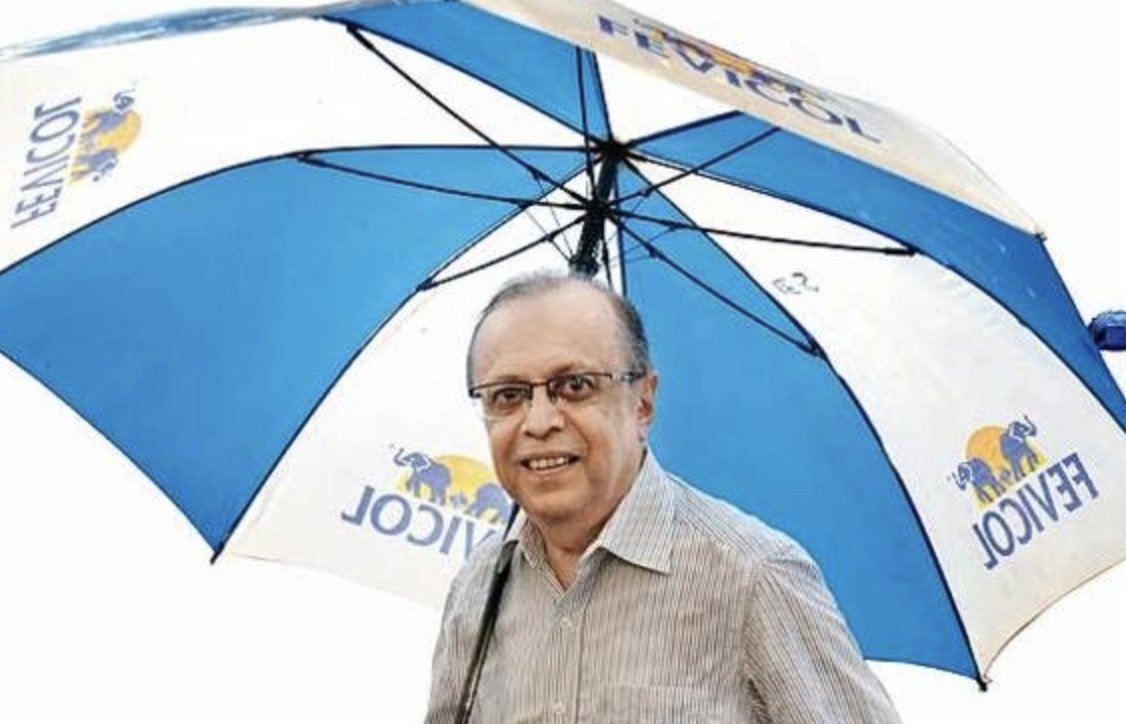
Story of how a farmer’s son from a small village redefined the Indian medical diagnostic industry
A Mega-Thread on Dr. Velumani @velumania and @Thyrocare Technologies
Would appreciate a Retweet as it helps us educate more investors and inspire us in producing more such content
A Mega-Thread on Dr. Velumani @velumania and @Thyrocare Technologies
Would appreciate a Retweet as it helps us educate more investors and inspire us in producing more such content

1) The son of a farmer whose father couldn't afford to buy him a pair of slippers, Velumani has crossed some rather rugged terrains since starting from the nondescript village of Appanaickenpatti Pudur near Coimbatore.
2) Along the way, the bespectacled scientist has also redefined the medical diagnostic industry in the country.
3) His company Thyrocare Technologies is one of India's largest healthcare diagnostic chains contributing to India's long-drawn fight against Covid-19.
3) His company Thyrocare Technologies is one of India's largest healthcare diagnostic chains contributing to India's long-drawn fight against Covid-19.
4) Thyrocare, a pioneer in the thyroid testing segment, has, over the past few years, expanded its business into other areas, like preventive health checkups and lipid profiling, among others, with outlets across India, Nepal, Bangladesh, and the Middle East.
5) They process 920+ million samples through over 3000+ collection centers across 800+ towns, making it one of the largest health diagnostic labs in India.
6) When India battled its first and second wave of Covid-19, they wear at the forefront, processing~ 35,000 samples a day.
6) When India battled its first and second wave of Covid-19, they wear at the forefront, processing~ 35,000 samples a day.
7) His parents toiled hard to bring up Velumani and his three siblings and ensured they received a decent education.
8) His mother inculcated the lesson of not borrowing money and taught him how to make ends meet with limited resources.
8) His mother inculcated the lesson of not borrowing money and taught him how to make ends meet with limited resources.
9) After his graduation in chemistry in 1978, Velumani's career began with a job as a shift chemist at Gemini Capsules, a small pharmaceutical company in Coimbatore, in 1979.
10) Three years later, the company shut down, and he was staring at an uncertain future.
10) Three years later, the company shut down, and he was staring at an uncertain future.
11) Around the same time, he used to visit the Central Library in Coimbatore where he saw a job posting in a newspaper for a scientific assistant at the Bhabha Atomic Research Centre.
12) BARC was one of India's foremost multi-disciplinary nuclear research centers in 1954.
12) BARC was one of India's foremost multi-disciplinary nuclear research centers in 1954.
13) But the entire selection process would take time, and Velumani returned to his hometown to look at other opportunities.
14) Around 50 days later, he received an offer letter to join the institute, and Velumani was once again back in Mumbai.
14) Around 50 days later, he received an offer letter to join the institute, and Velumani was once again back in Mumbai.
15) However, this time, a medical assessment had found him to have color blindness, forcing BARC to withdraw the offer.
16) Fifteen days later, he received a letter saying that color blindness will not affect his work.
16) Fifteen days later, he received a letter saying that color blindness will not affect his work.
17) Finally, after three trips to Mumbai, he had a job at BARC, work profile involved thyroid testing.
18) Velumani began spending his free hours in the library and started studying everything about the thyroid gland, endocrinology, immunology, microbiology, & molecular biology.
18) Velumani began spending his free hours in the library and started studying everything about the thyroid gland, endocrinology, immunology, microbiology, & molecular biology.
19) In 1985, he enrolled for a master's degree while being an employee at BARC before he completed his doctoral program in thyroid biochemistry in 1995.
20) In 1995, when he turned 37-year-old, with just Rs 1 lakh that he had pooled through his provident fund, he set up a testing facility in Byculla, a neighborhood in South Mumbai, to detect thyroid disorders.
21) It also helped that the lab was near the Tata Memorial Hospital, a prominent cancer institute in Mumbai.
22) India has grappled with hypothyroidism for a long time, with one in ten Indians suffering from the condition.
22) India has grappled with hypothyroidism for a long time, with one in ten Indians suffering from the condition.
23) Velumani started by charging one-fourth of the current fees in the market for processing the samples.
24)Even, the scientist-turned-entrepreneur knew the key to success was keeping costs low, which meant the business needed to process 25 samples a day to be cost-effective.
24)Even, the scientist-turned-entrepreneur knew the key to success was keeping costs low, which meant the business needed to process 25 samples a day to be cost-effective.
25) The company would provide a thyroid profile at Rs 100. That was mainly because it focussed on aggregating samples from numerous labs, thereby achieving economies of scale.
26)He decided to keep his services priced very low. He realized that if he's the lowest and the best, he'll be the tallest.
27) According to Velumani, no company has closed down because they kept prices low. All of them closed down because they could not control the cost.
27) According to Velumani, no company has closed down because they kept prices low. All of them closed down because they could not control the cost.
28) Over time, Velumani started with a franchise model where samples would be collected across the country and sent back to the central laboratory in Mumbai.
29) By 1999, the company had nearly 50 franchisees and processed some 200 samples a day.
29) By 1999, the company had nearly 50 franchisees and processed some 200 samples a day.
30) Until 2015, the company had only 1 lab in Mumbai to process the samples from all of India
31) But when he found that the lab was losing efficiency as the number of samples went up, he set up a new lab in Coimbatore and found only the efficiency was going up but not the cost
31) But when he found that the lab was losing efficiency as the number of samples went up, he set up a new lab in Coimbatore and found only the efficiency was going up but not the cost
32)Today, the company has 15 processing labs across the country.
33)In the meantime, he also rose to the rank of a scientist. He was posted at the Radiation Medicine Centre (RMC), a department that focused on applying nuclear energy in healthcare and agriculture.
33)In the meantime, he also rose to the rank of a scientist. He was posted at the Radiation Medicine Centre (RMC), a department that focused on applying nuclear energy in healthcare and agriculture.
34) In addition, from testing for thyroid, the company also expanded into other areas, including preventive medical checkups, blood tests, and pulmonary function tests
35)A significant part of the business, continued to be in the B2B category. He brought down the costs substantially in the testing business.
36) In 2016, over 20 years after, Thyrocare Technologies, listed on the bourses, subscribed 73 times at IPO.
36) In 2016, over 20 years after, Thyrocare Technologies, listed on the bourses, subscribed 73 times at IPO.
38)With all the success that the company has acquired, he surprised everyone when he announced to sell his company to a newcomer in the health industry, and a unicorn, PharmEasy, is one of the first instances of a startup buying a listed company.
39) Though all competitors had different rates, none really could dare to charge anything more than him.
40)All who ridiculed his pricing had to price it less to survive
With a CAGR of 25% for 20 years, they maintained an EBIDTA of 40% (demonstrates how scales of economy rule)
40)All who ridiculed his pricing had to price it less to survive
With a CAGR of 25% for 20 years, they maintained an EBIDTA of 40% (demonstrates how scales of economy rule)
“Had I not lost my wife suddenly, who was the backbone of this mission, I would not have exited Thyrocare” Says the man who redefined the medical diagnostic industry of India
Would appreciate a Retweet as it helps us educate more investors & inspire us in producing more threads.
Would appreciate a Retweet as it helps us educate more investors & inspire us in producing more threads.
• • •
Missing some Tweet in this thread? You can try to
force a refresh









